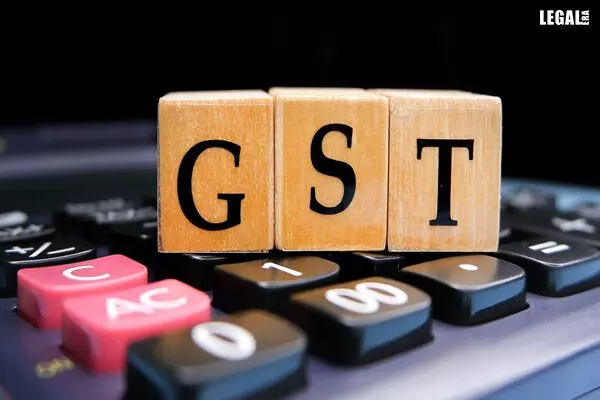- Home
- News
- Articles+
- Aerospace
- Artificial Intelligence
- Agriculture
- Alternate Dispute Resolution
- Arbitration & Mediation
- Banking and Finance
- Bankruptcy
- Book Review
- Bribery & Corruption
- Commercial Litigation
- Competition Law
- Conference Reports
- Consumer Products
- Contract
- Corporate Governance
- Corporate Law
- Covid-19
- Cryptocurrency
- Cybersecurity
- Data Protection
- Defence
- Digital Economy
- E-commerce
- Employment Law
- Energy and Natural Resources
- Entertainment and Sports Law
- Environmental Law
- Environmental, Social, and Governance
- Foreign Direct Investment
- Food and Beverage
- Gaming
- Health Care
- IBC Diaries
- In Focus
- Inclusion & Diversity
- Insurance Law
- Intellectual Property
- International Law
- IP & Tech Era
- Know the Law
- Labour Laws
- Law & Policy and Regulation
- Litigation
- Litigation Funding
- Manufacturing
- Mergers & Acquisitions
- NFTs
- Privacy
- Private Equity
- Project Finance
- Real Estate
- Risk and Compliance
- Student Corner
- Take On Board
- Tax
- Technology Media and Telecom
- Tributes
- Viewpoint
- Zoom In
- Law Firms
- In-House
- Rankings
- E-Magazine
- Legal Era TV
- Events
- Middle East
- Africa
- News
- Articles
- Aerospace
- Artificial Intelligence
- Agriculture
- Alternate Dispute Resolution
- Arbitration & Mediation
- Banking and Finance
- Bankruptcy
- Book Review
- Bribery & Corruption
- Commercial Litigation
- Competition Law
- Conference Reports
- Consumer Products
- Contract
- Corporate Governance
- Corporate Law
- Covid-19
- Cryptocurrency
- Cybersecurity
- Data Protection
- Defence
- Digital Economy
- E-commerce
- Employment Law
- Energy and Natural Resources
- Entertainment and Sports Law
- Environmental Law
- Environmental, Social, and Governance
- Foreign Direct Investment
- Food and Beverage
- Gaming
- Health Care
- IBC Diaries
- In Focus
- Inclusion & Diversity
- Insurance Law
- Intellectual Property
- International Law
- IP & Tech Era
- Know the Law
- Labour Laws
- Law & Policy and Regulation
- Litigation
- Litigation Funding
- Manufacturing
- Mergers & Acquisitions
- NFTs
- Privacy
- Private Equity
- Project Finance
- Real Estate
- Risk and Compliance
- Student Corner
- Take On Board
- Tax
- Technology Media and Telecom
- Tributes
- Viewpoint
- Zoom In
- Law Firms
- In-House
- Rankings
- E-Magazine
- Legal Era TV
- Events
- Middle East
- Africa
Sub-contractor not eligible for GST Concession Rate on shifting electrical utilities: West Bengal AAR

Sub-contractor not eligible for GST Concession Rate on shifting electrical utilities: West Bengal AAR
Concession allowed only in case of contract work related to road, bridge, tunnel, and terminal for road transportation for use by the public
The West Bengal Authority for Advance Ruling has ruled that a sub-contractor is not eligible for the Goods and Services Tax (GST) concession rate on shifting electrical utilities, which were a part of the highway construction by the main contractor.
The applicant, Powertech was engaged in the business of rendering contract services related to the modification, renovation and maintenance of roads and highway projects. It received a sub-contract from KCC Buildcon Private Limited, the main contractor for shifting electrical utilities, which was a part of the balance work for the National Highway Authorities of India (NHAI).
The applicant sought an advance ruling on whether the activity carried by it came under the Heading 9954: Entry No. 3(iv)(a) of Notification No. 11/2017-CT(R) and was liable to tax at 12 percent. Was it under the composite supply and whether the applicant was eligible for GST concession.
The sub-contractor submitted that the work proposed to it was just as the obligations of the main contractor. It required the construction and completion of a road project. Therefore, the GST concession should be applicable to the applicant just as it would on the main contractor.
He further contended that the applicant would be eligible for a 12 percent GST (6 percent CGST and 6 percent WBGST) concessional rate.
On behalf of the revenue department, the Singur Division submitted that the activities did not fall under the category specified by the applicant. The latter was given the work of shifting of electrical utilities, which was not eligible for a concessional rate. It was allowed only in case of contract work of road, bridge, tunnel, and terminal for road transportation for use by the public.
The AAR bench comprising Brajesh Kumar Singh (joint commissioner) and Joyjit Banik (senior joint commissioner) observed that providing services of shifting electrical utilities could not be regarded as services by way of construction of a road. Thus, it would not be eligible for a concession. It was not a composite supply of works and GST concession, as given to the main contractor, did not apply in the applicant's case.



